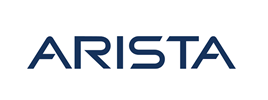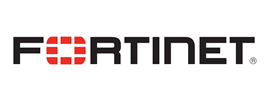- Course overview
- Course details
- Prerequisites
Course overview
About this course
This learning path prepares you for the task of migrating SQL Server workloads to Azure SQL.
You'll learn how to assess SQL Server components and compatibility for migration using the Azure SQL Migration Extension and Database Migration Assistant. You'll also learn how to provision and configure Azure SQL resources. You'll gain hands-on experience in choosing the best migration option to meet business requirements for downtime, handling migration state, and monitoring database migration.
Additionally, you'll also learn to perform post-migration tasks like disaster recovery and monitoring. These skills are essential for ensuring a smooth, efficient transition to Azure SQL, and maintaining its operation post-migration.
Audience profile
The primary audience for this course is
- Administrator
- Data Engineer
- Database Administrator
- Developer
- Solution Architect
- Azure SQL Database
- Azure Virtual Machines
- SQL Server
Course details
Module 1: Design a SQL Server migration strategy
- Explain what data platform modernization is
- Review the stages of a data migration
- Recommend when to use an Azure data platform technology
- Explore the cost savings of moving your SQL workloads to Azure
Module 2: Assess SQL Server databases for migration to Azure SQL
- Understand common compatibility issues and blockers that may prevent a migration to Azure SQL.
- Discover the various tools and options available for assessing SQL Server databases for migration purposes.
- Use the Azure migration extension for Azure Data Studio to assess SQL Server databases.
- Use the Azure Migrate and other tools to assess SQL Server databases.
Module 3: Deploy IaaS solutions with Azure SQL
- Explore the basics of SQL Server in an Infrastructure as a Service (IaaS) offering
- Learn the available options for provisioning and deployment
- Deploy SQL Server into an Azure Virtual Machine
Module 4: Deploy PaaS solutions with Azure SQL
- Gain an understanding SQL Server in a Platform as a Service (PaaS) offering
- Understand PaaS provisioning and deployment options
- Understand elastic pools
- Examine Azure SQL Managed Instances
- Explore Azure SQL Edge
- Configure a template for PaaS deployment
Module 5: Migrate SQL Server workloads to Azure Virtual Machine
- Understand the importance of careful planning for a successful migration of SQL Server workloads to Azure Virtual Machines.
- Migrate databases using Azure SQL Migration extension for Azure Data Studio and tracking database migration activities to SQL Server on Azure Virtual Machines.
- Explore several other methods for migrating SQL Server databases to Azure Virtual Machines.
Module 6: Migrate SQL Server workloads to Azure SQL Database
- Explore the advantages, capabilities, and migration possibilities offered by Azure SQL Database.
- Migrate databases using Azure SQL Migration extension for Azure Data Studio and tracking database migration activities.
- Use transactional replication as an online method to migrate to Azure SQL Database.
- Explore several other methods for migrating SQL Server databases to Azure SQL Database.
Module 7: Migrate SQL Server workloads to Azure SQL Managed Instance
- Explore the advantages, capabilities, and migration possibilities offered by Azure SQL Managed Instance.
- Learn how Log Replay Service works to migrate to Azure SQL Managed Instance.
- Understand how Managed Instance link feature works in a migration scenario.
- Load and move data to and from Azure SQL Managed Instance.
- Explore several other methods for migrating SQL Server databases to Azure SQL Database.
Module 8: Perform post-migration tasks on Azure SQL
- Implement compliance controls for sensitive data.
- Monitor database performance in Azure SQL.
- Configure high availability and disaster recovery in Azure SQL.
- Automate database tasks for scalability.
Prerequisites
- Experience with SQL Server databases.
- Knowledge of SQL Server editions and versions.
- Basic knowledge of security concepts like identities and permissions.
- Experience using the Azure portal to create resources and set permissions.
Enquiry
Course : DP-3001: Migrate SQL Server workloads to Azure SQL
Enquiry
request for : DP-3001: Migrate SQL Server workloads to Azure SQL





















